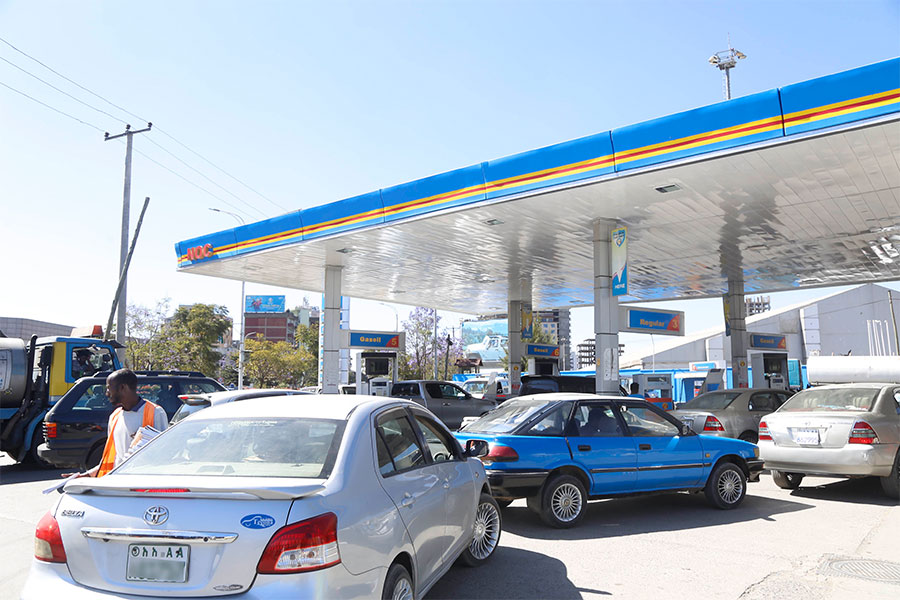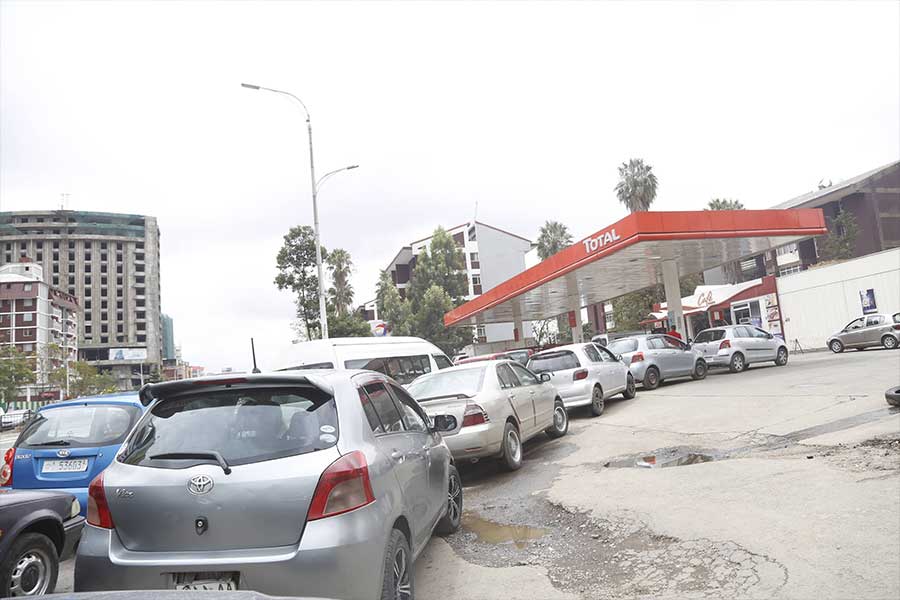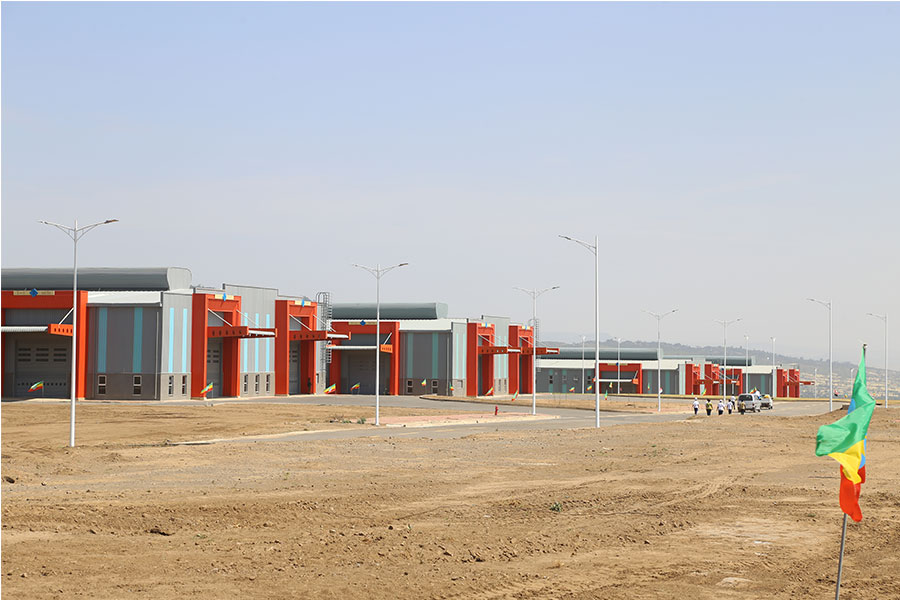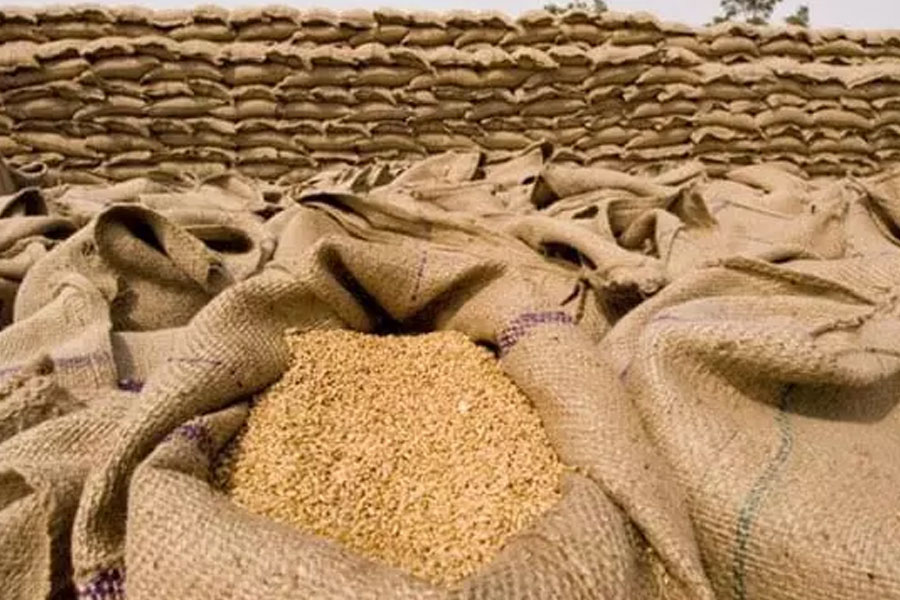
Fortune News | Dec 11,2021
It’s been barely a month since the first case of Novel Coronavirus (COVID-19) brought horror to Ethiopia. Since then, the bustling capital of the country has been drowning in silence with little activity to be found.
Many businesses have been closing their doors out of fear of the pandemic, normally busy streets are empty, and the economy has slowed to a crawl. Perhaps one of the strangest sights are the cars swarming around fuel stations throughout the capital like so many ants.
On April 1, 2020, a National Oil Company (NOC) gas station, located across the street from Skylight Hotel, was one of the fuel stations that has been seeing an unusual increase in traffic with more than 45 cars lined up outside the station with workers running around to serve their customers.
Isreal Saba, supply unit officer at the United Nations Economic Commission for Africa (UNECA), is among those in the long queue.
“I haven't gotten fuel in two weeks, so I've been lined up here since 7:00am in the morning," said Isreal. “It’s ridiculous what the past weeks have been like for me, I have been going around Bambis and Meskel Square, but either there is no gas or there is a long line waiting to get gas.”
After Africa was hit by the outbreak, Sudan ordered the closure of all borders on March 16, including the corridors Ethiopia transports its petroleum through.
Following the outbreak of the virus, many people are also going to the gas station to buy out of fear that there will soon be a shortage of gas in the country, according to a worker at one of the stations, which has six pumps and 25 employees.
“We've been seeing users that buy 100 or 200 Br worth of fuel out of fear even if their gauge is full,” he said.
Cars line up at a gas station on Bole near Mega Building. Many drivers have been spooked by the border closure with Sudan.
After Sudan ordered the closure of its borders, there has been a gap in the import of benzene in the country, according to Alemayehu Tsegye, public relations director of Ethiopian Petroleum Supply Enterprise.
Ethiopia has been transporting 450,000lt of benzene through Sudan across the border of Metama a day, which translates to six trucks at a minimum and 10 trucks at a maximum. The country has been importing from 2.2 to 2.4 million litres of benzene through the terminal at Djibouti.
“Even though the amount that is transported through Sudan is small as compared to the corridor of Djibouti," said Alemayehu, "it has shown an impact in satisfying the demand of the public."
The borders were closed to ensure the necessary precautions are taken by the transporters before resuming the usual activity, according to him. After a discussion between the Ministry of Foreign Affairs and Sudan's counterpart last week, the duo came to an agreement on precautions that should be conducted during the importing of fuel.
Looking at the amount of volume imported through Sudan, it is evident that it is less than five percent as compared to Djibouti, so concluding that the closure has impacted the situation doesn’t hold water, according to Eshete Assfaw, state minister for Trade & Industry.
“The biggest issue lies in the public's fear of the pandemic, fear of border closure has settled within the minds of the public,” he added. “In addition, the stations are hoarding fuel with the same rationale.”
On April 2, a branch of Total Ethiopia S.C. located near Haile Garment was caught red-handed hoarding 29 barrels of benzene, which approximately equates to two middle-sized trucks, according to the Ministry of Trade & Industry.
“We are working toward creating public awareness to subdue the fear as there is no problem on fuel imports, and individuals or institutions with illegal acts are being pursued to ensure the rule of law," Eshete said.
In the first half of this fiscal year, Ethiopia has imported one million tonnes of petroleum products, representing an 11.4pc annual expansion due to an 8.2pc increase in the importation of gas oil; 32.9pc, in regular gasoline; and 109.6pc, in fuel oil. Out of all petroleum imports, gas oil accounted for 61.1pc, followed by jet fuel at 20.8pc, regular gasoline at 15.8pc and fuel oil at 2.3pc.
The shortage is not a problem that originated with the pandemic, according to one of the owners of the Total gas station located next to Brass Maternity & Children’s Hospital.
"It has been like this for quite some time, and it’s very frustrating. It is forcing me to close down this station," he said, adding that he is planning to lay off 17 of his employees.
“For instance, today, we don’t have benzene, we only have gas oil and we have been asking the headquarters as well, but there is no change. On a good day we usually sell close to 10,000lt of benzene, but this has not happened for a long time," he added.
Currently, the capital city has 121 fuel stations. After reaching an agreement with Sudan, 10 trucks are waiting at Metema, northwest of Ethiopia, in the Amhara Regional State on the border with Sudan.
There has not been anything unusual in our supply both in rural and urban places where fuel stations are situated, according to Tewodors Yeshiwas, managing director of Gomeju Oil Ethiopia, established in 2016 and operating with 2,000 employees, 67 fuel stations and 219 trucks.
“But there has been traffic due to the fear that there will not be fuel and this is something that the government needs to address,” he added.
Three weeks ago there was a delay in offloading gas in Djibouti, and this has created a gap for close to three days. It was due to the interruption caused by the checking protocols at the terminal, according to Tewodors.
Ethiopia’s petroleum import bill in the first half of this fiscal year amounted to 16.7 billion Br, showing a 3.4pc reduction in response to the decline in international oil prices.
It is not convincing that the issue with Sudan can impact the supply, the main problem lies in the loading capacity of the Djibouti corridor, according to Tadesse Tilahun, chief executive director of National Oil Ethiopia (NOC), established 16 years ago and now operating 215 fuel stations throughout the country with 1,200 trucks.
“The problem of fuel will prevail as long as the government doesn’t enhance the capacity of the terminal in Djibouti,” Tadesse said.
Because of the measures taken by the regional and federal government in response to the pandemic, we expect the demand of fuel as well as the revenue to be impacted, according to Tadesse.
“The lockdown doesn’t affect the transporters that move consumer goods and fuel," said Eshete. “Hence companies should adhere to their normal activity and ensure there is a supply of goods in this time of hardship.”
Currently, the country has close to 30 oil companies, of which more than half preside over the whole country, whereas three operate in the rural regions only.
Ethiopia has 13 reserve depots throughout the country with Awash having the highest reserve. With the current reserves, Ethiopia can hold on for 36 days without fuel. After the Dukem reserve depot is completed, the country will have a reserve capacity that would last for 60 days.
In times like this, one of the sectors that would be hit hard is logistics, according to Busha Temsegen (PhD), lecturer on logistics and supply chain management at Addis Abeba University's School of Business & Economics.
“The country already has a weak logistics structure and in order to pass through this hard time there should be efficient and effective teams at the borderlines and conversations with other countries to maintain firm testing controls," said the expert, “This'll ensure logistics move as smoothly as possible.”
PUBLISHED ON
Apr 04,2020 [ VOL
21 , NO
1040]

Fortune News | Dec 11,2021

Fortune News | Nov 03,2024

Agenda | Feb 20,2021

Radar | Dec 21,2019

Fortune News | Nov 30,2019

Fortune News | Oct 19,2019

Radar | Jun 15,2025

Fortune News | Jan 26,2019

Radar | Jan 11,2020

Fortune News | May 15,2021

Dec 22 , 2024 . By TIZITA SHEWAFERAW
Charged with transforming colossal state-owned enterprises into modern and competitiv...

Aug 18 , 2024 . By AKSAH ITALO
Although predictable Yonas Zerihun's job in the ride-hailing service is not immune to...

Jul 28 , 2024 . By TIZITA SHEWAFERAW
Unhabitual, perhaps too many, Samuel Gebreyohannes, 38, used to occasionally enjoy a couple of beers at breakfast. However, he recently swit...

Jul 13 , 2024 . By AKSAH ITALO
Investors who rely on tractors, trucks, and field vehicles for commuting, transporting commodities, and f...

Nov 1 , 2025
The National Bank of Ethiopia (NBE) issued a statement two weeks ago that appeared to...

Oct 25 , 2025
The regulatory machinery is on overdrive. In only two years, no fewer than 35 new pro...

Oct 18 , 2025
The political establishment, notably the ruling party and its top brass, has become p...

Oct 11 , 2025
Ladislas Farago, a roving Associated Press (AP) correspondent, arrived in Ethiopia in...